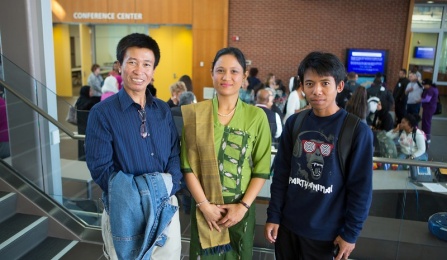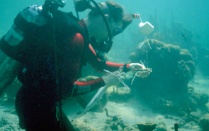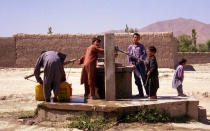Refugee Health Initiative

Portrait of Alberica Piko, a Burmese refugee ESL student at the Educational Opportunity Center, Downtown Buffalo
Working to improve refugee health and wellbeing
Buffalo, NY is one of the top resettlement sites for refugees in the United States, resettling about 1,500 refugees annually. Refugees with diverse cultures, traditions and languages arrive in the United States with little knowledge of its systems and regulations. Many refugees have experienced trauma and sometimes torture due to conflict or war. The existing health care infrastructure is inadequately equipped to care for refugees; refugee patients can face numerous challenges in accessing high quality health care. Refugees often face barriers that include miscommunication due to poor interpretation across language divides, stigma related to mental health care, and differing perspectives of health and well-being.
The Annual WNY Refugee Health Summit
Since 2014, the Office of Global Health Initiatives (OGHI) has facilitated a UB-community partnership focused on improving health care for the refugee population in Buffalo. Currently, the OGHI and the Community for Global Health Equity (CGHE) host the Annual WNY Refugee Health Summit to unite refugees, resettlement representatives, community leaders, clinicians and scholars in pursuit of better health and wellbeing for new Americans.



